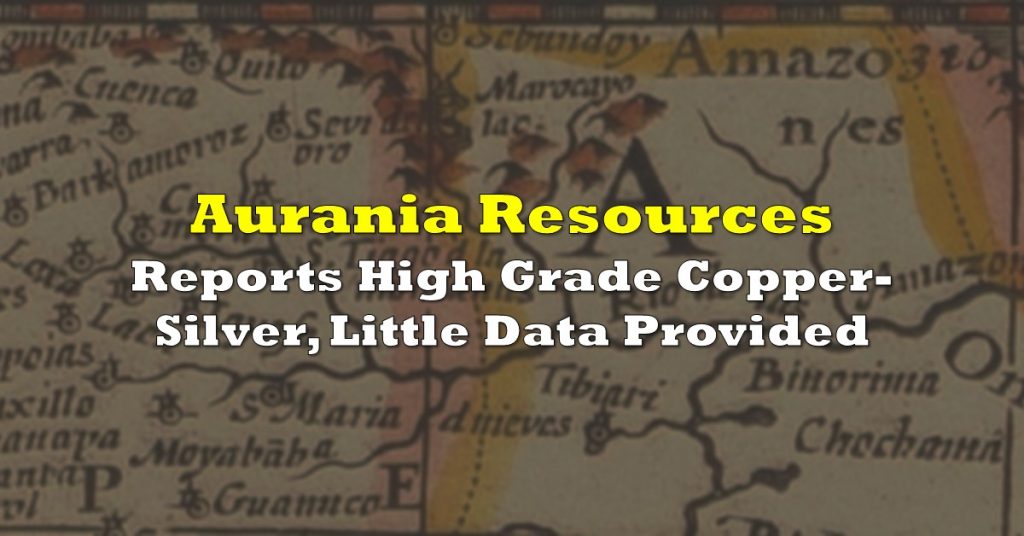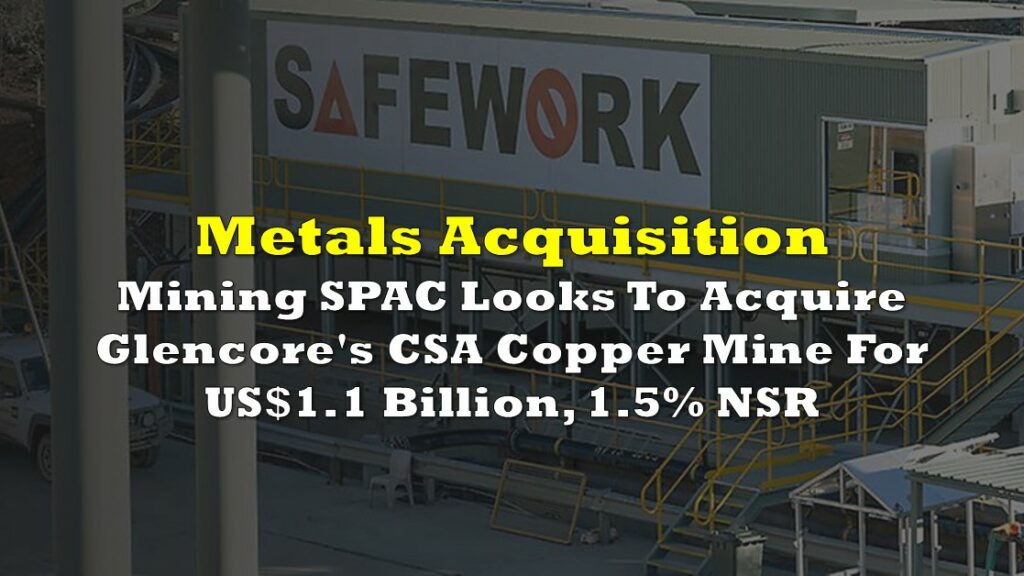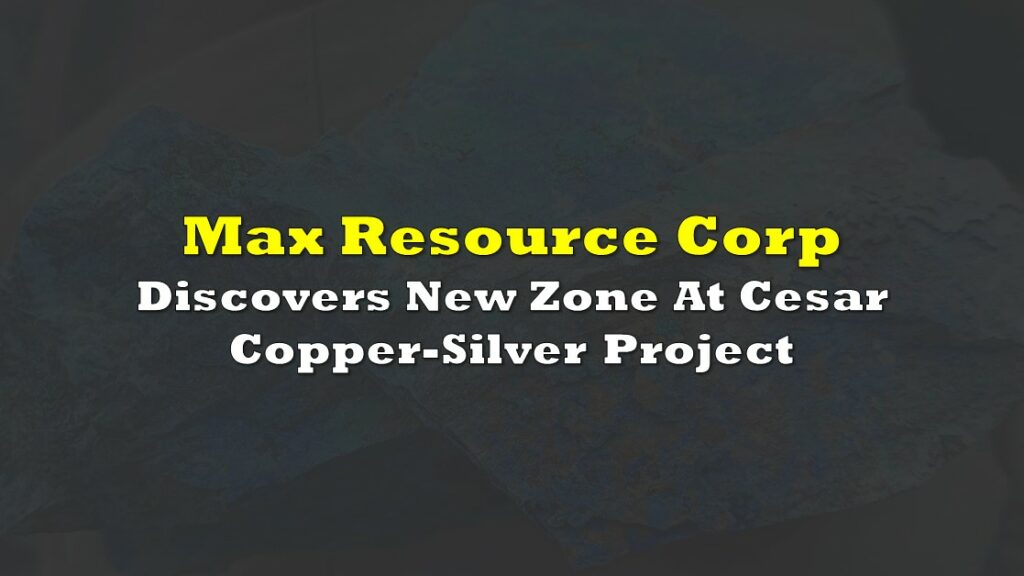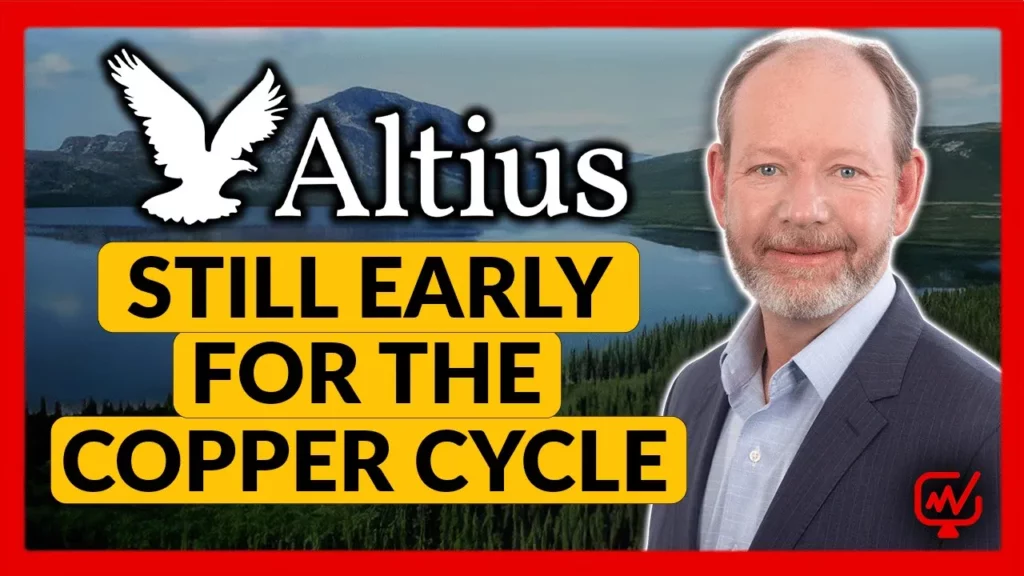In a significant development for Solaris Resources Inc. (TSX: SLS), the Canadian government is reportedly scrutinizing a $130 million private placement by an affiliate of Zijin Mining Group. The investment is intended for the advancement of Solaris’ flagship Warintza Project in southeastern Ecuador. However, concerns have arisen over potential regulatory hurdles.
Solaris recently announced a subscription agreement with an affiliate of Zijin for a private placement of approximately $130 million, involving the issuance of 28,481,289 common shares at a price of $4.55 per share. This move positions Zijin to hold approximately 15% of Solaris’ common shares on a fully diluted basis. The funds from this private placement are earmarked for the Warintza Project’s development and general corporate purposes.
Daniel Earle, President & CEO of Solaris, spoke highly of the strategic partnership in an announcement, emphasizing Zijin’s impressive track record and its potential contribution to unlocking the full potential of the copper-rich Warintza district.
“We’re just very excited, very very excited and proud to be able to announce this transaction this morning with Zijin… it’s one of the most successful major mining companies in the world,” Earle said.
The investment comes hot on the heels of an $80 million US financing deal with Orion Mining Finance in December, positioning Solaris on solid financial ground as it embarks on its ambitious copper exploration project in Ecuador.
Earle expressed his enthusiasm about the partnership with Zijin, highlighting the company’s remarkable track record as one of the most successful global mining companies. He stated, “It’s really an historic track record that they’ve developed from their origins as a small gold miner to now becoming a true global major with operations in 16 countries.”
Zijin, currently the sixth-ranked copper producer globally, has set ambitious growth plans to secure a spot among the top three by the end of the decade. Earle drew parallels with Zijin’s transformative impact on Ivanhoe Mines and expressed optimism about a similar trajectory for Solaris.
Following the announcement, Solaris witnessed a positive market response, with a 5% increase in its stock value on the day of the announcement. Zijin acquired a 15% stake in the company at a 14% premium over the previous day’s closing price.
When asked about the utilization of the funds, Earle outlined that while the previous financing provided a baseline for the project, the additional funds could be allocated to areas crucial for growth, including exploration, infill drilling, and infrastructure development. He emphasized the importance of building a robust project and expanding the regional exploration beyond Solaris’ existing discoveries.
Addressing Zijin’s role, Earle noted that the Chinese company has the right to nominate a director to the Solaris board and participation rights in future financings. However, he refrained from speculating on Zijin eventually taking over the entire company, emphasizing the value of having access to Zijin’s expertise.
Earle also highlighted that the additional funding would enable the company to expand its community support programs, generating employment and strengthening the social license for the project.
Regarding the recent security concerns in Ecuador, Earle clarified that Solaris’ mining district is located in the southeast, far removed from the areas experiencing a surge in crime related to drug trafficking and international cartels. He commended President Daniel Naboa’s efforts to address security issues, foreseeing long-term benefits for the country.
Looking ahead, Earle outlined key goals for Solaris in 2024, including a mineral resource update in Q2, an expanded drilling program, and progress in community programs and environmental impact assessment submissions. He hinted at the potential for multiple discoveries in the region and assured stakeholders that Solaris is well-positioned to deliver on its commitments.
The copper irony
In an X post, Rosseau Asset Management President Warren Irwin expressed concerns over the possibility of the Canadian government rejecting Zijin’s $130 million investment in Solaris Resource, highlighting potentially severe consequences for the Canadian junior mining sector.
Irwin commented, “@SolarisResource Zijin’s $130 million investment will be turned down by the Canadian Government. Massive negative implications for the Canadian junior mining sector. No copper explorer will ever incorporate or list in Canada going forward.”
#sls @SolarisResource Zijin’s $130 million investment will be turned down by the Canadian Government. Massive negative implications for the Canadian junior mining sector. No copper explorer will ever incorporate or list in Canada going forward. The continued destruction of…
— Warren Irwin (@ItsWarrenIrwin) February 4, 2024
Irwin went on to express frustration, stating, “The continued destruction of one of Canada’s key industries by people unfamiliar with the international nature of our business and the fact that there are very few western mining companies that support junior copper mining. There will be massive negative implications for our junior market due to our misguided policies and unintended consequences as companies leave Canada for jurisdictions that do not have Canada’s restrictions. This is a disaster for our industry.”
Tommy Humphreys, founder of CEO.ca added a broader perspective, saying, “The west is slowly committing suicide. It’s not like we’re stepping up to fill the gap. No modern society without copper. We need all the vision & capital we can get, including China’s. Take it from Warren, for 25 yrs. one of mining’s top investors. Note no news on SLS Zijin $ yet.”
The west is slowly committing suicide
— Tommy Humphreys (@tommyhump) February 4, 2024
It’s not like we’re stepping up to fill the gap
No modern society without copper
We need all the vision & capital we can get, including China’s
Take it from Warren, for 25 yrs. one of mining’s top investors
Note no news on SLS Zijin $ yet https://t.co/PWsU5L4e2w
It can be noted that in November 2022, Canada issued a stern warning to its mining sector, urging companies to distance themselves from state-linked money from China targeting critical minerals. The policy shift, implemented in October, restricts transactions between domestic critical mineral projects and foreign state-owned enterprises while encouraging investments from partners aligning with Canada’s interests and values.
Canada has identified a roster of 31 minerals deemed “critical” in the present context. Among these 31 critical minerals, the strategy places initial emphasis on six due to their unique potential to drive Canadian economic expansion and their indispensability as inputs for priority supply chains. These six minerals comprise lithium, graphite, nickel, cobalt, copper, and rare earth elements.
Canada’s firm stance in avoiding Chinese firms was exemplified in November 2022 when it ordered three Chinese companies – Sinomine Resource Group, Chengxin Lithium Group, and Zangge Mining Company – to divest minority stakes in three lithium developers, namely Power Metals, Lithium Chile, and Ultra Lithium.
This move came as a departure from Canada’s historical leniency towards Chinese investments in its mining market. Over the past two decades, Chinese companies have invested over $7 billion in Canada’s non-precious metals sector, making significant contributions to companies like Ivanhoe Mines, Teck Resources, Nevsun Resources, and Neo Lithium.
The targeted policy is aimed at limiting Canadian mining and exploration companies’ access to Chinese funds linked to state-owned enterprises, particularly in the production of crucial metals and minerals essential for the energy transition. The list of affected materials includes copper, aluminum, lithium, nickel, rare earth elements, platinum group metals, uranium, and potash, excluding precious metals like gold and silver.
However, as it relates to the Zijin deal, a different perspective was presented by a user who commented, “Respectfully, I’m not sure that turning down the $130 mln Zijin’s (intention of) investment in @SolarisResource / $SLS.TO would be a bad decision of #Canada, if so.”
Respectfully, I’m not sure that turning down the $130 mln Zijin’s (intention of) investment in @SolarisResource/ $SLS.TO would be a bad decision of #Canada, if so.
— constantin savin (@savinfamily) February 4, 2024
1. What about the free capital in #China and about the possibility of a Canadian #Mining company to invest,… https://t.co/mBIBILc97P
The user raised two critical points for consideration, stating, “What about the free capital in #China and about the possibility of a Canadian #Mining company to invest, without any risk for its own capital, in #China’s strategic metals sector? If Zijin is the only one at $SLS.TO table, maybe it must verify why, before crying wolf, IMHO.”
The said policy does not categorically ban all Chinese investments in Canada’s critical minerals sector, leaving room for scrutiny based on influence and impact on supply chains. While older investments are likely safe, increased Chinese stakes in existing Canadian companies could trigger further review.
In response to the November announcement, a spokesperson for China’s Ministry of Commerce (MOFCOM) expressed concerns, stating that China would take necessary steps to protect the rights and interests of its companies.
Following the policy implementation, Natural Resources Minister Jonathan Wilkinson has clarified that the country will not compel Chinese state investors to divest their stakes in three major mining companies.
“If you start looking backwards at investments, it will create all kinds of uncertainty about whether an investment is ever really an investment,” Wilkinson stated in an interview.
Refinitiv statistics highlight significant Chinese ownership in major Canadian mining companies. China Investment Corp owns 10.3% of Teck Resources, CITIC Metal Group holds a 26% stake in Ivanhoe Mines, and Jiangxi Copper Corp, China’s largest copper producer, owns 18.3% of First Quantum Minerals.
“Not as sensitive”
The potential rejection of Zijin’s investment has sparked a debate on the possible ramifications for Canada’s mining industry. Critics argue that the decision may discourage future investments and lead to an exodus of mining companies to jurisdictions with fewer restrictions. On the other hand, some suggest that exploring opportunities in China’s strategic metals sector could be a viable alternative, utilizing the available capital and minimizing risks for Canadian mining companies.
Solaris recently addressed the issue on X, clarifying that a decision on the Zijin deal has not been reached, and one is unlikely until the completion of the Investment Canada Act process, currently in the information gathering stage, over the coming months.
Solaris emphasized that National Security Reviews are not pre-judged, and decisions are kept confidential until the conclusion of the review process. The company reassured stakeholders that decisions do not leak during this period.
Responding to concerns about Chinese investment in copper, Solaris highlighted that there is no ban on such investments. The company pointed out that transactions involving copper, even those more sensitive than Solaris’, have been approved and successfully closed. Solaris emphasized that no transactions have been rejected, and there have been no divestiture orders issued.
“There is no ban on Chinese investment in copper. Copper transactions more sensitive than ours have been approved and closed; no transactions have been rejected and no divestiture orders have occurred,” the firm posted.
Solaris sought to differentiate copper from other minerals like rare earth elements, graphite, lithium, and cobalt. According to the company, copper is considered less sensitive due to its diverse and secure supply chain.
“There is no proprietary technology at stake. The asset is not in Canada and not in production,” the firm added.
Copper is not as sensitive as REE, graphite, lithium, cobalt because the supply chain is diverse and secure and there is no proprietary technology at stake. The asset is not in Canada and not in production.
— Solaris Resources Inc. (@SolarisResource) February 5, 2024
Information for this briefing was found via the sources mentioned. The author has no securities or affiliations related to this organization. Not a recommendation to buy or sell. Always do additional research and consult a professional before purchasing a security. The author holds no licenses.










2 Responses
Well, It’s called the “deep” dive, but it only scratches the financial surface, making no mention at all of the concerns of the Shuar people of Ecuador. And this is why it is high time for the Canadian government to step in and take a stand in relation to Canadian mining companies’ operations throughout South America.
We covered the complaint made the Shuar Arutam People against Solaris here. Thanks for reading!